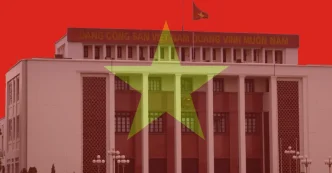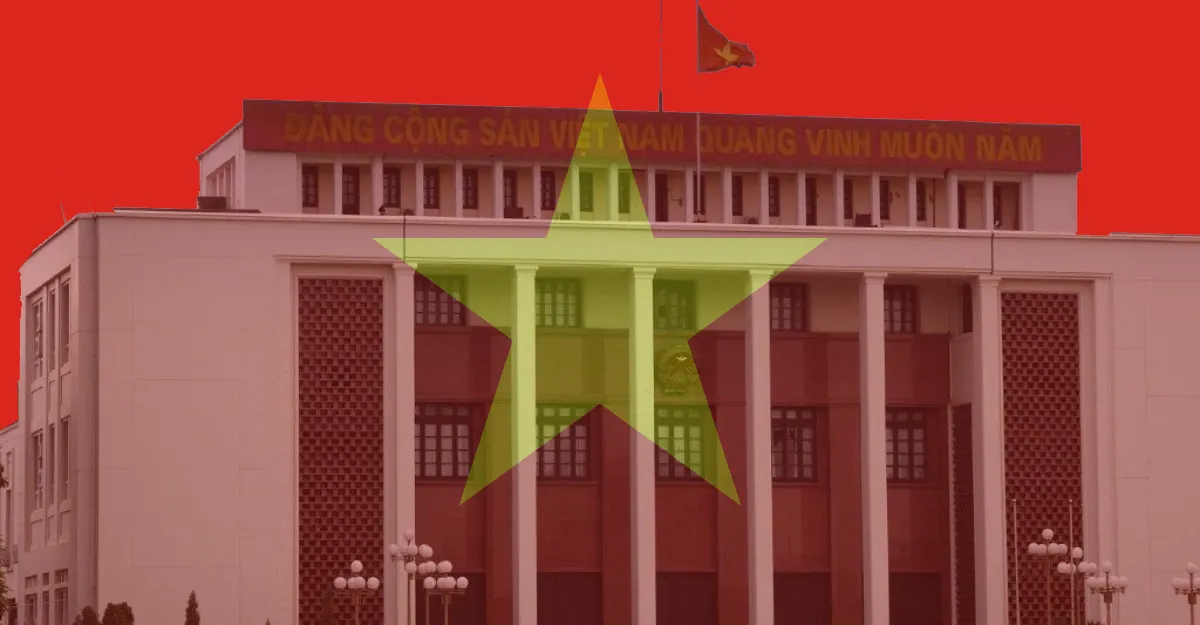Ha Noi – Vietnam’s National Assembly has initiated discussions on potential amendments to the country’s constitution, a move that could reshape the political landscape of the socialist state. Announced on June 23, 2025, the proposed reforms aim to address governance structures, economic policies, and civil rights, sparking a mix of optimism and concern among analysts, lawmakers, and the public. As the Communist Party of Vietnam (CPV) maintains its central role, questions linger about the scope of change and its implications for the nation’s future.
Key Proposals Under Consideration
The National Assembly, Vietnam’s highest legislative body, outlined several key areas for reform during its latest session in Ha Noi. While specific details remain under wraps, preliminary reports from state media, including Vietnam News, suggest the amendments may focus on strengthening state mechanisms for economic modernization, enhancing anti-corruption measures, and potentially expanding certain civil liberties. One rumored change involves adjusting the term limits or roles of key leadership positions, though no official confirmation has been provided.
A senior Assembly member, speaking anonymously due to the sensitivity of the discussions, hinted at the need for “adaptive governance” in a rapidly changing global environment. “Vietnam must balance tradition with progress” said the official, emphasizing the importance of maintaining socialist principles while addressing modern challenges. Without verified details, however, speculation abounds about whether these reforms will prioritize economic liberalization or political control.
Historical Context of Constitutional Change
Vietnam’s current constitution, last amended in 2013, reaffirmed the CPV’s leadership while introducing provisions for human rights and market-oriented reforms. That amendment cycle, driven by the need to integrate into global trade systems like the World Trade Organization (WTO), marked a cautious opening. The 2025 proposals, if confirmed, could build on this trajectory, though the CPV’s dominance suggests any changes will align with its ideological framework.
Historically, constitutional revisions in Vietnam have served as tools for consolidating power or signaling policy shifts. The 1992 constitution, for instance, formalized the transition to a “socialist-oriented market economy,” paving the way for economic growth while preserving political centralization. Analysts note that the current reforms may reflect similar dual goals—modernizing governance while safeguarding the CPV’s authority. “The Party has always adapted to survive” said Dr. Linh Tran, a political scientist based in Ho Chi Minh City, cautioning that expectations of dramatic liberalization may be premature.
Economic Implications and Public Sentiment
One potential focus of the reforms is economic policy, with whispers of changes to land ownership laws and foreign investment regulations. Vietnam’s economy has boomed in recent decades, becoming a manufacturing hub with GDP growth averaging around 6-7% annually pre-pandemic. Yet, challenges like income inequality and state-owned enterprise inefficiencies persist. Some speculate that constitutional tweaks could streamline privatization or clarify property rights, though no evidence confirms such plans.
Public sentiment, gauged through social media platforms like X and local forums, reveals a divided populace. Urban professionals in Ha Noi and Ho Chi Minh City often express hope for reforms that ease business regulations or bolster transparency. “We need laws that help small businesses, not just big corporations” said a Ha Noi-based entrepreneur on a public X thread. Conversely, rural communities worry that economic shifts could exacerbate land disputes or favor foreign investors over local farmers. Without official drafts to review, these reactions remain speculative but highlight the stakes of the debate.
Civil Rights and Political Space
Perhaps the most contentious aspect of the proposed reforms involves civil rights. Vietnam’s constitution already enshrines freedoms of speech, assembly, and religion, but implementation often lags due to strict state oversight. International observers, including Human Rights Watch, have long criticized restrictions on dissent and online expression under laws like the 2018 Cybersecurity Law. There is cautious hope among some activists that the reforms might loosen these controls, though past patterns suggest incremental rather than sweeping change.
“Any expansion of rights will likely come with caveats” said Nguyen Thi Mai, an independent researcher on Vietnamese governance. She points to the CPV’s historical emphasis on stability over individual freedoms as a guiding principle. The government has yet to comment on specific civil rights proposals, and until drafts are public, discussions remain hypothetical. If reforms do address this area, their impact on Vietnam’s global image—already under scrutiny for press freedom rankings—could be significant.
Regional and International Reactions
Vietnam’s constitutional deliberations are not occurring in a vacuum. Neighboring countries like Laos and Cambodia, with similar political systems, may view the reforms as a bellwether for regional governance trends. Meanwhile, economic partners like the United States and the European Union, which have deepened trade ties through agreements like the EU-Vietnam Free Trade Agreement (EVFTA), are likely monitoring for signals of market-friendly policies or human rights progress.
Posts on X from international think tanks, such as @ConstitutionNet, reflect curiosity about Vietnam’s balancing act between reform and control. A recent post noted, “Vietnam’s constitutional talks could test the limits of socialist adaptation in Southeast Asia” signaling academic interest in the outcome. Major outlets like Reuters have yet to report specifics, underscoring the opacity of the process at this stage. For now, global stakeholders can only watch and wait for concrete developments.
Challenges and Risks Ahead
Amending a constitution in a one-party state like Vietnam is fraught with challenges. Internally, consensus within the CPV and National Assembly is crucial, as factional disagreements could stall progress. Historically, debates over economic versus ideological priorities have caused delays in policy implementation. Externally, the government must manage public expectations while avoiding perceptions of weakness or capitulation to foreign pressure.
Anti-corruption, a stated priority for the CPV under General Secretary Nguyen Phu Trong’s leadership, may also complicate reforms. High-profile purges in recent years, targeting officials and business tycoons, have signaled a crackdown on graft. If constitutional changes codify stricter oversight, they could alienate powerful elites, risking internal pushback. Conversely, failing to address corruption could undermine public trust, a delicate balance for lawmakers to strike.
Financial Dimensions of Reform
Implementing constitutional changes often carries financial costs, from public consultations to legal overhauls. While no budget figures have been released, local media speculate that funding could strain state coffers already stretched by post-pandemic recovery and infrastructure projects. For context, a recent urban development initiative in Ha Noi was priced at 2.5 trillion Vietnamese Dong (US$98 million), illustrating the scale of government spending. Any reform-related expenses will likely face scrutiny amid calls for fiscal restraint.
Foreign investment, a lifeline for Vietnam’s growth, may also hinge on the reform’s direction. Investors often seek stability and clarity in legal frameworks, areas where constitutional amendments could play a role. A misstep—such as overly restrictive policies—might deter capital inflows, while progressive changes could bolster confidence. The exchange rate, as of June 23, 2025, remains a factor, with costs and investments often calculated against the US dollar for international stakeholders.
The Road Forward
As Vietnam’s National Assembly deliberates, the nation stands at a crossroads. Will the constitutional reforms herald a new era of governance, or will they reinforce existing structures under a modern guise? The opacity of the process fuels uncertainty, leaving citizens, analysts, and international observers to parse rumors and official hints for insight.
For now, the streets of Ha Noi buzz with cautious anticipation. Shopkeepers, students, and officials alike ponder what these changes might mean for their daily lives and the country’s trajectory. As the debate unfolds over the coming months, one question looms large: can Vietnam evolve its political system while preserving the ideological core that has defined it for decades? Only time—and the Assembly’s final draft—will provide the answer.















